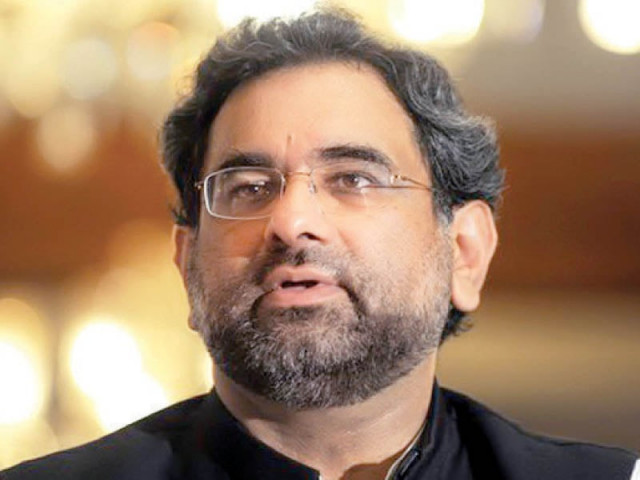Reconstitution: PM Abbasi to head ECC himself as Dar edged out
Cabinet’s key committee will have nine regular members

Petroleum minister Khaqan Abbasi
This is for the first time during the last many years that a prime minister has decided to become ECC’s chairman. During the past four years of the PML-N rule, Finance Minister Ishaq Dar was the chairman of the committee. Besides, during much of the previous tenure, led by the PPP, the ECC reigns had been held by finance minister.
The decision shows that Prime Minister Abbasi wants to push ahead with his energy-centric agenda. During last four years, Abbasi, as petroleum minister, had to repeatedly request Dar to convene ECC’s meetings for taking decisions on important matters.
Former prime ministers Benazir Bhutto and Shaukat Aziz used to chair ECC meetings. Deposed prime minister Nawaz Sharif never chaired these meetings while former prime minister Yousaf Raza Gilani chaired the ECC meetings for a few months until Shaukat Tareen was appointed as adviser on finance in August 2008.
“The prime minister has been pleased to reconstitute the ECC of the cabinet, and its chairman will be prime minister himself,” says a Cabinet Division notification issued on August 10.
According to a former member, the ECC is half the cabinet and Prime Minister Abbasi’s decision to retain its chairmanship suggests he wants to take full control of the affairs – a move that would shift decision-making on economic matters away from Q Block, the seat of the finance ministry.
In the saddle: Abbasi’s 43-member cabinet sworn in
According to the Cabinet Division notification, the ECC will comprise nine regular members on finance, commerce and textile, communication, industries and production, law and justice, national food security, privatisation, railways, statistics, and water resources.
However, in the absence of the prime minister due to any of his other commitments, the finance minister will chair ECC meetings, according to the notification.
With its chairman exercising prime ministerial powers, the ECC takes decisions on all economic matters, including change in tax rates and setting sector-specific economic policies.
Prime Minister Abbasi’s decision to retain the ECC chairmanship would greatly reduce political space hitherto available with Finance Minister Dar.
During the past four years, Dar was enjoying complete control over all economic matters, sometimes at the expense of other ministers.
Most of the time there was hardly any debate on issues placed before the ECC for a decision. Dar used to set the agenda of the ECC for the cabinet secretary to notify it. There were occasions when an ECC meeting was called on a day’s notice and its members used to know about the agenda only before the start of the meeting.
ECC rolls over bank loans as circular debt crosses Rs800b
It is not the only incident where Dar’s powers have been curtailed. Under former prime minister Nawaz Sharif, Dar used to serve as minister of five divisions – finance, revenue, economic affairs, statistics and privatisation.
However, PM Abbasi has relieved Dar of the charge of statistics and privatisation divisions.
The prime minister has appointed a new minister for statistics while there is still no minister for privatisation. Affairs related to privatisation would be seen by the PM himself.
When the PML-N government came to power in 2013, Shaukat Tareen, who was finance minister during the PPP tenure, had advised Sharif to separate the Privatisation Division from the finance ministry, said sources. However, Dar did not let that happen.
The control over the Statistics Division is considered very important as it works out numbers of annual economic growth, unemployment, investments, savings, literacy and all other social indicators.
There were allegations in the past that the Pakistan Bureau of Statistics had manipulated the annual economic growth rate for FY2015-16. However, the PBS denied the allegations.
The Cabinet Division notification also shows that as many as 20 members will be invited through special invitations to attend the ECC meetings. Among them are Minister of State for Petroleum, Minister of State for Power, governor State Bank of Pakistan, chairman Securities and Exchange Commission of Pakistan, chairman Board of Investment and 15 federal secretaries.



















COMMENTS
Comments are moderated and generally will be posted if they are on-topic and not abusive.
For more information, please see our Comments FAQ